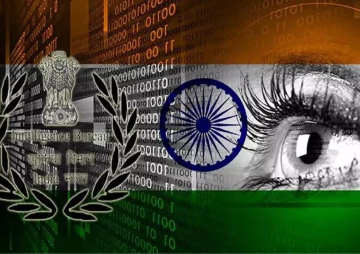There has been two political developments in Nepal of high significance in the last few days. On August 28, vice-chairman of UCPN (Maoist) Dr Baburam Bhattarai became the 35th prime minister of Nepal by a majority vote of the legislature-parliament. The very next day, the tenure of the Constituent Assembly (CA) was extended by a resounding majority of 537 votes for a period of three months.
That the parties will resort to another CA extension was indeed a foregone conclusion even before Jhalanath Khanal resigned as the prime minister on August 14. It was obvious as consensus did not yet emerged among the political parties on the completion of peace process and over major issues of constitution writing. Khanal resigned acknowledging that he had failed to advance a stagnant peace process or agree with the opposition on a new constitution -- the tasks he had promised to accomplish when he was elected to his post by a parliamentary vote in February this year and supported by the Maoists.
Although the UCPN (Maoist) had initially proposed a six-month extension this time, the caretaker government had registered a bill to extend the CA by three months. However, like in the past a last minute understanding emerged in favour of an extension as in absence of a national consensus the parties did not have any other option. This is the third extension of the CA, the first was in 2010 and the second in May this year.2
Khanal had stated that he resigned to pave the way for formation of a national consensus government and for the completion of the peace process and constitution writing. Unfortunately, however, even after rigorous dialogues among the political stakeholders over the last two weeks no long-term consensus has emerged that would effectively deal with the issues of national interests at present. As a result, no consensus government could emerge with the country getting another majority government as per Article 28 (2) of the Interim Constitution. The contest this time was between Bhattarai and vice-president of Nepali Congress and parliamentary party leader Ram Chandra Poudel, who fought 17 rounds of voting with Khanal earlier.
The United Madhesi Front, a group of five Madhesi parties, voted for Bhattarai after reaching a four-point deal. The Front had earlier called on the Maoists to surrender arms to the state.
Breakdown of consensus
Although the Maoists have returned to power after 27 months, the consensus politics is still elusive in absence of which a stalemate has persisted for the last two years. Since 2009, the country has slipped into bad governance and political discord. The breakdown of consensus is clearly on power sharing and not on the agenda of peace and constitution. Therefore, like many experts have now said that there can only be a tactical consensus among the political actors of Nepal and not a long-lasting consensus on issues of national concerns. While engaging in power tussle, the political leaders have proved beyond doubt that peace, prosperity and stability are not their priorities. This has raised serious doubts among the general public on the commitment on the part of the political stakeholders to drive the country ahead.
Lack of trust among the political parties is more visible now and is a great factor contributing to instability in Nepal. While, the CPN (Maoist) has failed to deliver on all past agreements and have been unable to woo other parties to accept its leadership, Nepali Congress and CPN-UML, the second and third largest parties in the CA, are very insecure vis-à-vis the Maoists. This was made amply clear when the Congress pressed hard on completion of peace process first even when the Maoist party proposed its vice-chairman Dr Bhattarai as its prime ministerial candidate and assured the two other parties that significant progress in the peace process will be made under a consensus government led by Bhattarai.
Another factor which is contributing to instability is rampant internal conflicts within the political parties of Nepal. Three factions have emerged within the Maoist party led by chairman Pushpa Kamal Dahal Prachanda, senior vice-chairman Mohan Baidya and vice-chairman Dr Bhattarai. Although Prachanda has given into the Bhattarai line of peace and constitution, the hardliners in the party led by Baidya have held uncompromising positions on issues of integration, federalism and governance system. Likewise, the Nepali Congress has seen fierce battle between Poudel and senior leader Sher Bahadur Deuba. The divide was amply visible when a compromise had to be met last week with Congress naming Poudel as its PM candidate for a majority government and Deuba to lead a consensus government. The UML too is divided among two factions - one led by party chairman Khanal and other by influential leaders like K P Sharma Oli and former PM Madhav Kumar Nepal. The division has made UML unable to arrive at any concrete proposal on peace process.
The Madhesi parties from southern plains of Nepal, which emerged in mainstream after the CA poll with the slogan of ’One Madhesh One Pradesh’, are now fragmented with many splinter groups forwarding its own agenda. Thus the internal wrangling has weakened the democratic transition and has taken a heavy toll on the peace process.
The peace plan
After failing to persuade the opposition Nepali Congress, the Maoists on August 25 unveiled a comprehensive roadmap to peace and stalked claim of the leadership of a national unity government although the country is already set to get a majority government. The UCPN (M) proposed a 45 day plan on integration, which would be implemented by a government led by it. Prachanda said that such a plan would convince other parties that Maoists are serious towards completion of the peace process.
As per the new plan, the party is ready to begin before August 31 the categorisation of the combatants. It proposed Rs 700,000 to Rs 1 million as rehabilitation package to those opting against integration. As for the number of combatants to be integrated in the security forces, the plan said that the party proposes 8,000 combatants adding that it is flexible about decreasing that number. It also said that the party would be ready to hand over the weapons containers to the Special Committee. And that steps would be taken to return properties seized by them during the insurgency.
But the proposal already received set back with the other major parties calling it "retrogressive" and "unconvincing." The Nepali Congress, CPN-UML and some Madhesi parties said the Maoist proposal on management of arms and armies is not acceptable to them as the proposal is a retrograde step from all the progress made in informal discussions held hitherto among the parties in the course of the peace process.
This leaves the Nepali politics back to square one. Another majority government like that of Khanal’s will not be able to address the core issues of peace process, leaving the constitution writing in limbo. Bhattarai will soon face similar problems that Khanal faced during his tenure. The important question then will be what happens after the third extension is over?
(The writer is an Associate Fellow at Observer Research Foundation)
The views expressed above belong to the author(s). ORF research and analyses now available on Telegram! Click here to access our curated content — blogs, longforms and interviews.




 PREV
PREV

